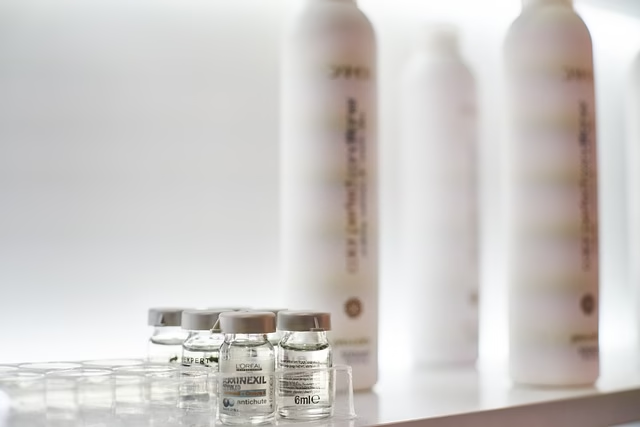Introduction to Peptide Therapy and Its Implications for Cancer
To begin, peptide therapy is leading the way in 21st-century medicine, utilizing amino acid sequences to help the body repair and rejuvenate itself. Moreover, these potent compounds function as biological messengers, signaling cells to perform essential tasks like tissue repair, collagen production, and hormone regulation.
Recently, there has been increasing interest in several related topics. On one hand, wellness and anti-aging are gaining attention, especially regarding skin rejuvenation and longevity. On the other, athletes—such as former elite competitors—are exploring recovery and performance-based uses of peptides, such as the popular HunnyBunz products.
Furthermore, the brain-body connection is being highlighted in platforms like The Motivation Manifesto by Brendon Burchard. As people search for new healing strategies, peptide therapy continues to emerge. LifeWave products, while not available in retail, support the body’s own healing processes by enhancing its natural functions.
As a result, this ultimate guide will explore:
✅ How peptide therapy works at the cellular level
✅ The best peptides for various health goals
✅ Clinical uses ranging from anti-aging to injury recovery
✅ Safe usage protocols for effective results
Let’s now unpack the science and practical benefits of peptide therapy.
Peptide Therapies: The Best Peptides and Their Functions
BPC-157: The Healing Peptide
To start with, BPC-157 offers remarkable healing benefits. It accelerates injury recovery (especially for tendons, ligaments, and muscles), repairs gut lining (helpful in leaky gut, ulcers, IBS), and lowers inflammation—essential for post-surgery healing. It works by promoting angiogenesis and collagen production. Consequently, it has become especially popular among athletes with joint issues.
GHK-Cu: The Gold Standard in Skin Rejuvenation
Next, peptide therapy with GHK-Cu brings impressive cosmetic results. Benefits include increased collagen and elastin, tighter and more textured skin, and stimulated hair growth. Scientifically, GHK-Cu switches on genes responsible for tissue healing and can even reverse UV damage. Studies show it speeds wound healing significantly.
Ipamorelin: Optimizing Growth Hormone Naturally
Additionally, Ipamorelin provides an all-natural way to boost GH. It enhances muscle gain without water retention, supports fat loss, and improves sleep quality. Unlike synthetic HGH, Ipamorelin stimulates the pituitary to naturally release growth hormone.
TB-500 (Thymosin Beta-4): For Muscle and Joint Recovery
Finally, TB-500 focuses on injury recovery and joint health. It heals muscle tears, relieves joint pain and stiffness, and enhances flexibility. Thus, it’s an ideal option for injured athletes or individuals dealing with arthritis.
Peptide Therapy Applications for Anti-Aging
Fighting Aging at the Cellular Level
When addressing aging, peptide therapy plays multiple roles. It boosts collagen production by signaling fibroblasts, which in turn reduces fine lines. In terms of skin hydration, peptides increase hyaluronic acid levels, creating a plumper skin appearance. Furthermore, they activate stem cells to regenerate tissues.
Best Anti-Aging Peptides
GHK-Cu tightens skin, Epithalon extends telomeres (slowing cellular aging), and Argireline mimics Botox by relaxing the skin. For instance, one 12-week study found GHK-Cu increased skin density by 17%.
Peptides for Strength and Recovery
Muscle Growth & Performance
In this case, Ipamorelin combined with CJC-1295 supports lean muscle development. Meanwhile, TB-500 helps reduce downtime between intense workouts.
Injury Healing
Peptides like BPC-157 and TB-500 are also critical for injury recovery. While BPC-157 aids torn ligaments, TB-500 helps reduce scar tissue. For example, MMA fighters using BPC-157 healed 50% faster from sprain injuries.
How to Use Peptides Safely
Administration Methods
The most effective methods include injections (subcutaneous or intramuscular), particularly for full-body effects or injury treatment. In contrast, creams are used for anti-aging purposes. Although oral peptides exist, they are generally less bioavailable.
Dosage Guidelines
| Peptide | Dosage | Frequency |
|---|---|---|
| BPC-157 | 250–500 mcg/day | 4–6 weeks |
| GHK-Cu | 2–5 mg/day | 3 months |
| Ipamorelin | 200–300 mcg/day | 5 days on, 2 off |
Cycling Recommendations
A typical cycle lasts 8–12 weeks, followed by a 4-week break. This helps the body reset and prevents tolerance.
Side Effects & Safety in Peptide Therapy
Common Side Effects
These may include mild redness at the injection site, minor headaches (especially from GH peptides), or temporary increases in hunger.
Who Should Avoid Peptides?
Peptides are not recommended for pregnant or nursing women, current cancer patients, or individuals on immunosuppressants.
FDA Status
It’s important to note that most peptides are not FDA-approved, though they are legal for research use. That said, peptides like BPC-157 and TB-500 are already in medical use across Europe.
FAQs About Peptide Therapy
Q: Are peptides better than steroids?
A: Yes, because they support natural healing without suppressing hormones.
Q: When can results be seen?
A: Skin: 4–8 weeks; Muscle recovery: 2–3 weeks; Injury healing: 3–6 weeks.
Q: Do oral peptides work?
A: Not all are effective orally. For example, BPC-157 performs better via injection.
Q: Can peptides replace HGH?
A: Ipamorelin and CJC-1295 mimic natural GH release without disrupting the body’s hormone balance.
Conclusion: Should You Try Peptide Therapy?
In summary, peptide therapy involves using peptides to combat chronic conditions like cancer, obesity, diabetes, arthritis, and depression. Benefits include:
✔ Anti-aging effects (e.g., younger-looking skin and increased collagen)
✔ Fitness improvements (e.g., enhanced muscle and endurance)
✔ Recovery support (e.g., quicker healing for injuries and joint pain)
Next Steps
- Consult a doctor who specializes in peptide therapy
- Begin with smaller doses to assess tolerance
- Track improvements through photos or lab markers
As many experts claim:
“Peptides are the next wave of regenerative medicine—tapping into the body’s own healing capacity.”


2 Comments
Pingback: Anti-Aging Foods: Eat Your Way to Youthful Skin and Vitality - WELLNESS ADDITION
Pingback: Botox and Dysport: A Guide to Wrinkle-Relaxing Injections - WELLNESS ADDITION